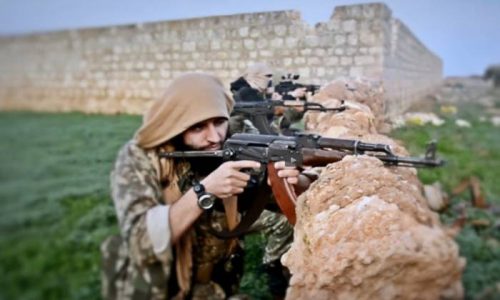
The Balkans turn into a hotbed for terrorist recruitment
The Balkans have been one of the regions of recruitment of foreign fighters joining the ranks of the Islamic State since the terrorist group became an influential non-state actor across eastern Syria and north-western Iraq. Among the Balkan countries, a large number of IS foreign fighters have come from Albania.
According to an April 2018 report by the Western Balkans Extremism Research Forum, the UK government funded research project examining drivers of radicalisation and violent extremism in the Western Balkans, in the period from 2012 to 2015 approximately 144 Albanian citizens have travelled to Syria and Iraq to primarily join the ranks of the Islamic State and in lesser numbers the Al-Qaeda affiliate Jabhat al-Nusra-most recently rebranded Hay’at Tahrir al-Sham (HTS). This is indicative of the transnational influences of violent extremists’ online propaganda (dissemination channels) rather than transnational cooperation of structured violent extremists’ groups.
Xhemati Alban is a ‘Katiba’ (combat unit) composed of ethnic Albanian fighters operating in and around the north-western Syrian province of Idlib. The Formation’s official webpage describes Xhemati Alban as a “jihadist formation composed of people of great will, mainly Albanians from Kosovo, Albania, (Northern) Macedonia and Presevo Valley (territory in Southern Serbia populated predominantly by ethnic Albanians), whose cause is to fight in the way of Allah”. Further elaborating on the Formation’s motives for joining the war in Syria, this webpage states that “the tyranny and repression of Syria’s dictatorial regime against its people and their call for help prompted ethnic Albanians, just like other Muslims across the word, to massively respond to the call”.
Abdul Jashari (alias Abu Qatada al-Albani), born on September 25, 1976 in Skopje, former Yugoslavia (currently the capital of North Macedonia), is the Commander of Xhemati Alban. He is considered a close advisor to Abu Muhammad al-Julani, the Commander-in-Chief of the Syrian militant group Tahrir al-Sham.
On November 10, 2016, the U.S. Treasury Department designated Jashari a terrorist and stated that he helped to raise funds for the families of Jabhat al-Nusrah Front fighters. During the summer of 2015, Jashari led the Jabhat al-Nusrah Front military operations in northern Syria. He has maintained a significant military standing within the jihadists’ ranks for more than four and a half years now. He has appeared in at least five Xhemati.
Alban videos between 2016 and 2020, but has never revealed his full face and has only addressed the audience on three occasions, to provide accounts of battlefield tactics and to praise the bravery of his fallen comrades.
Xhemati Alban releases frequent propaganda videos that emphasise on its members’ technical training capabilities, weapons manufacturing capacities, and combat preparedness. Media releases by Xhemati Alban’s outlets between 2017 and mid-2020 suggest that the group may have up to 24 fighters, although the current number of non-Albanians in its ranks is unclear, and therefore the number of ethnic Albanians within the group may be smaller.
On October 18, 2017, one of Xhemati Alban’s social media channels posted an image of 18 balaclava-clad men in military fatigues and armed with automatic weapons, sniper rifles, and a rocket-propelled grenade (RPG) launcher under the banner in the Albanian language reading “Xhemati Alban: The infiltration unit”. In September 2019, Xhemati Alban released a new video about fighting in Kabani, Iraq.
The video is light on combat footage, but highlights how the outfit takes advantages of fortifications, sparse firing holes/positions in favourable geography, and long-range weapon use.
One of the most recent propaganda videos, released on May 8, 2020, by Xhemati Alban’s official media outlet and entitled “Military training: SPG9 and AGS-17” depicts an instructor providing training to at least eight balaclava-clad men dressed in military fatigue.
The augmenting influence of the Albanian jihadist group both online and on grounds posits significant challenges to the security of the Balkan region in particular and the world in general.
Source: New Delhi Times





